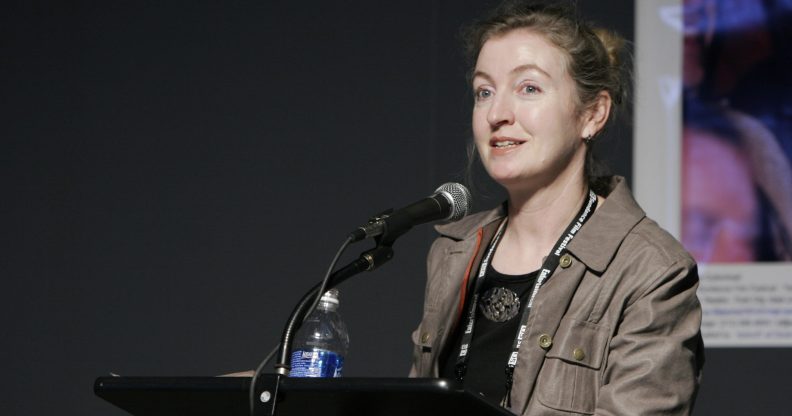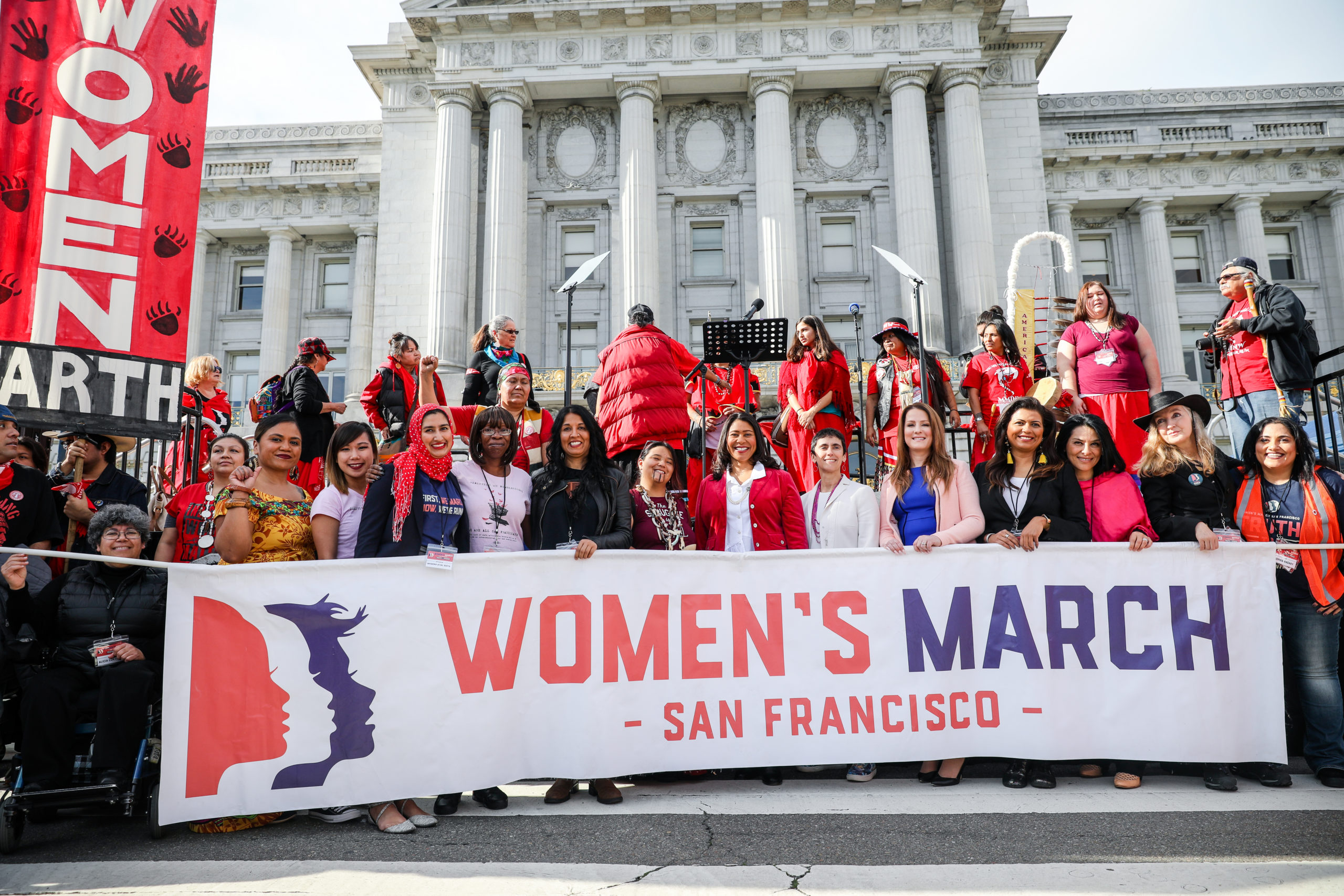Cis feminist author Rebecca Solnit says it louder for the people at the back: ‘It’s impossible to be feminist if you exclude trans women’

Rebecca Solnit at the 2005 Sundance Film Festival. (Rebecca Sapp/WireImage) *** Local Caption ***
American author Rebecca Solnit says that it’s impossible to be a feminist unless your feminism includes trans women.
The feminist writer, whose books include Men Explain Things to Me, and Other Essays and Hope in the Dark, has written a column for the Guardian US about why she supports trans rights.
Having “watched transphobia explode in the American right and the British whatever”, Solnit argues that “feminism is a subcategory of human rights advocacy, which means, sorry, you can’t be a feminist if you’re not for everyone’s human rights, notably other women’s rights”.
Her column, as trans journalist Shon Faye pointed out online, is the latest in a long line of opinion pieces from cis women disclosing their support – or opposition to – transgender people, rights and lives.
“As grateful as I am for Rebecca Solnit’s solidarity in her Guardian article, I’m just so ? by the fact there’s still a media ‘conversation’ about trans women’s lives now solely conducted by cis women,” Faye said. “Cis people are once again positioned as the primary experts on trans lives.”
She added: “The conversation seems stuck on the same two op-eds which have existed in one form or another for at least five years.”
Rebecca Solnit wrote that she has many trans, non-binary, bisexual, gay and lesbian friends, and that she’s “not speaking for any of them”.
“So many queer and trans people have already spoken up eloquently,” she says, “but perhaps there’s something useful for a cisgender straight woman to say to other cisgender women, which I’m gonna say as someone who is also a hardcore feminist: the major threat to women, straight or not, cis or not, always was and still is straight men and patriarchy.”
Solnit continues: “One of the really weird fears about trans women is that they’re men pretending to be women to do nefarious things to other women, but that’s either a fear of straight cisgender men who do horrific things to women incessantly all over the world, in which case the problem is still straight men, or a deep misunderstanding of what trans women are.
“And yes, men who want to harm women could dress up as women, but they could also pretend to be repairmen or emergency workers to get into our homes, and actually have, and we haven’t banned repairmen and emergency workers yet.”

Rebecca Solnit (second from right) at the San Francisco Women’s March on January 19, 2019. (Kelly Sullivan/Getty Images)
Rebecca Solnit also touches on “the bathroom issue”, pointing out that she’s been using public bathrooms in San Francisco for “40-something years” and has never “heard of, or read of, let alone seen, an incident in which a trans woman or girl somehow caused unpleasantness in a women’s room”.
“It does not appear to be something anyone worries about here,” Solnit says. “In the Year of Our Lady 2020 there’s still a fuss in the UK about the bathroom business.”
On the threat of violence to cis women from trans women, Solnit says it’s “a sad waste of time” to focus on this “imaginary maybe presumably it-could-theoretically-happen violence” when there’s “so much real violence against women”.
She also touches on the moral panic around trans kids, writing that she knows of trans people who only found “the chance or courage” to transition later in life, who often lived “ruinously miserable lives beforehand”.
“It’s great that people can transition earlier, and in those early cases parents and medical experts tend to be exceedingly careful about how those decisions are made,” she adds. “We all need to trust them and recognise that that’s their business and not ours.”
Finally, Rebecca Solnit addresses the claim – repeated ad nauseum by cis women writing for national newspapers about how they’re being silenced by trans activists – that trans rights are erasing women.
“There are about four billion women and girls on Earth, and we are not in danger of being erased,” Solnit says.
“But also there is no one-size-fits-all definition of what a woman is; some of us are born with absent or divergent personal parts, or with chromosomal or hormonal anomalies; we come in many shapes and styles,” she adds.
“It’s not about having a uterus or breasts or periods or about giving birth, because women are not breeding stock.
“Some of us had mastectomies or hysterectomies or in the case of Angelina Jolie, who I’m pretty sure everyone accepts as a woman, both; and so many other variations exist, because nature is restlessly creative and gender is more a spectrum and a circus than two lockboxes.”

